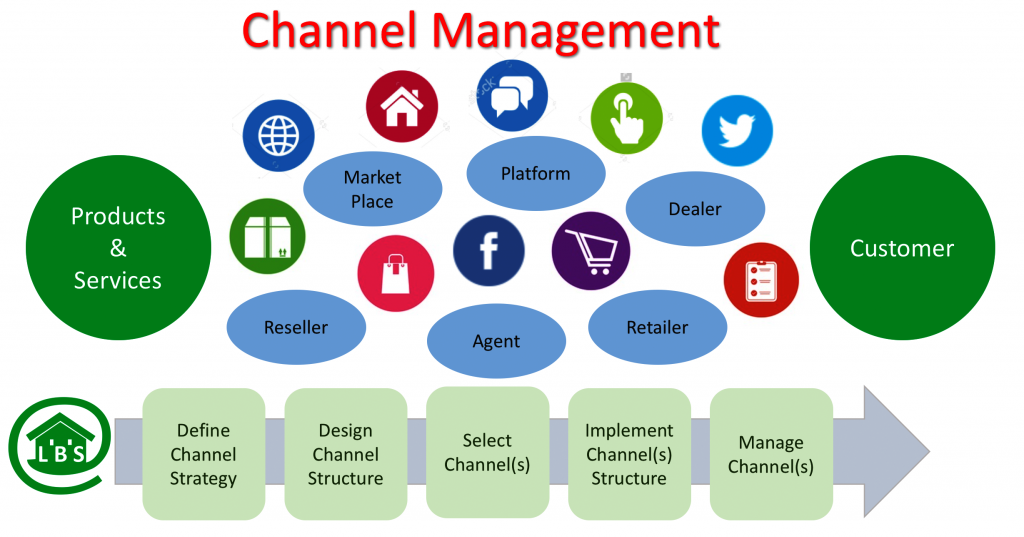A channel management system plays a crucial role in effectively managing product distribution channels for businesses. This system facilitates the coordination of sales, marketing, and inventory across various retail outlets and sales channels. By implementing a channel management system, businesses can enhance pricing accuracy, provide better customer service, and exercise greater control over the entire sales process. Consequently, this leads to improved efficiency in managing product distribution channels and increased profitability for businesses across different sectors.
Definition of Channel Management System
A channel management system, often referred to as CMS, encompasses a suite of tools designed to assist businesses in managing their diverse sales channels. These channels may include web stores, marketplaces, physical stores, and more. Essentially, a channel partner management system is a comprehensive solution that enables businesses to manage their sales activities simultaneously across multiple channels. It integrates various functions, including inventory management, order and payment processing, customer service, and analytics.
Channel management systems have gained popularity among both online and offline retailers due to the multitude of advantages they offer. They enable companies to streamline operations across multiple outlets, providing better customer service and improved efficiency. With the help of a channel management system, businesses can gain an integrated view of all customer interactions, ensuring pricing strategies are accurately implemented across various channels. Moreover, these systems simplify the process of collecting data from different sources, allowing businesses to gain valuable insights into consumer behaviour and optimize their marketing efforts accordingly.
In addition to efficiently managing customers’ purchases from different outlets, channel management systems provide other benefits such as swift tracking of inventory levels across all locations, reduced errors resulting from manual data entry, real-time communication between stores or warehouses, smooth product returns, and tracking of sales performance over time for each channel.
Benefits of Channel Management System
In today’s increasingly competitive business landscape, companies are constantly seeking ways to streamline operations and reduce costs. Implementing a channel management system is one effective strategy to achieve these goals. By utilizing a channel management system, businesses can enjoy several key benefits:
Understanding Customer Demand: A channel management system helps businesses gain a deeper understanding of customer demand patterns. This enables them to adjust inventory levels accordingly, ensuring they have the right products in stock when customers need them the most. By closely analyzing customer demand patterns, businesses can also optimize promotional efforts such as discounts or special offers, thereby driving up sales volumes.
Time Savings through Automation: Channel management systems automate various processes, including order processing and inventory tracking. This eliminates the need for manual data entry, saving time and reducing errors associated with manual processes. Automated systems provide businesses with quick insights into their product distribution channels, enabling them to make informed decisions on channel management strategies.
Enhanced Customer Service: With a channel management system, businesses can provide better customer service across multiple sales channels. By integrating customer interactions from various platforms, businesses can track individual customer preferences and needs. This centralization allows for a more personalized and efficient customer experience, leading to higher levels of satisfaction.
Data-Driven Decision Making: A channel management system that provides detailed analytics on performance across different sales outlets. This data enables businesses to identify opportunities for improvement, allocate resources effectively, and optimize marketing strategies. By leveraging data-driven insights, businesses can make informed decisions to drive revenue growth and customer satisfaction.
Challenges of Channel Management System
While channel management systems offer numerous benefits, they also come with certain challenges that businesses must consider during implementation:
Data Accuracy and Consistency: Managing multiple channels simultaneously increases the risk of errors and inconsistent data across platforms. To address this challenge, businesses must establish accurate tracking methods across all channels. Changes made in one channel should be reflected consistently in all other platforms.
Managing Customer Relationships: Interacting with customers across different platforms can make it challenging to track individual preferences and needs without a centralized system in place. A channel management system helps businesses overcome this challenge by providing a holistic view of customer interactions across multiple platforms.
Integration of New Technology: Integrating new technologies, such as artificial intelligence (AI) or machine learning, into an existing channel management system can be a complex task. It requires careful planning and implementation to ensure seamless integration and maximize the benefits of new technology.
Features of Channel Management System
A channel management system offers various features that contribute to its value and effectiveness in managing multiple sales channels:
Automation: An efficient channel management system automates processes, allowing businesses to set up rules and workflows for each channel. This eliminates the need for manual management of channels individually, ensuring consistency and minimizing errors.
Analytics: Detailed analytics provided by a channel management system empower businesses with insights into performance across different sales outlets. This data helps companies make informed decisions regarding resource allocation, improving customer service, and identifying opportunities for growth.
Inventory Management: A channel management system enables businesses to track inventory levels across multiple outlets efficiently. This ensures accurate and timely replenishment, reducing the risk of out-of-stock items and missed sales opportunities.
Centralized Communication: With a channel management system, businesses can facilitate real-time communication between stores or warehouses. This improves collaboration, streamlines operations, and ensures efficient handling of customer requests or inquiries.
Common Types of Channels Managed by a CMS
A Content Management System (CMS) is a versatile tool that can effectively manage various digital channels. Some of the most common types of channels managed by a CMS include:
Websites: Websites serve as essential channels for businesses to engage with customers online. A CMS enables businesses to create and manage high-quality websites with features such as custom design, multimedia galleries, blog posts, e-commerce stores, and more. It allows for easy updates and maintenance of web pages.
Mobile Apps: With the growing popularity of mobile apps, businesses can leverage a CMS to build high-quality mobile experiences tailored to customers’ preferences and needs. A CMS simplifies the process of creating personalized mobile app experiences, ensuring a seamless and user-friendly interface.
Social Media: Social media platforms, including Facebook, Twitter, Instagram, and more, have become crucial communication tools for businesses to directly engage with potential customers in real time. A CMS facilitates effortless posting and updates across these platforms, eliminating the need for manual management.
Conclusion
In conclusion, a channel management system is an invaluable tool for businesses to efficiently manage their sales and distribution channels. By providing accurate information about products, pricing, and performance across channels, a channel management system enables businesses to make informed decisions on the most effective channels for reaching customers. It automates tasks, streamlines operations, and enhances customer service. With the right channel management system in place, businesses can optimize their sales channels for maximum growth potential, ultimately driving profitability and customer satisfaction.





More Stories
Chino Moreno is finishing up recording the new Deftones album with producer Nick Raskulinecz
Bleeding Through give us a taste of whats to come from the band with new single
This Day In Music History: May 8th, 2001: Sum 41 explodes with ‘All Killer No Filler’